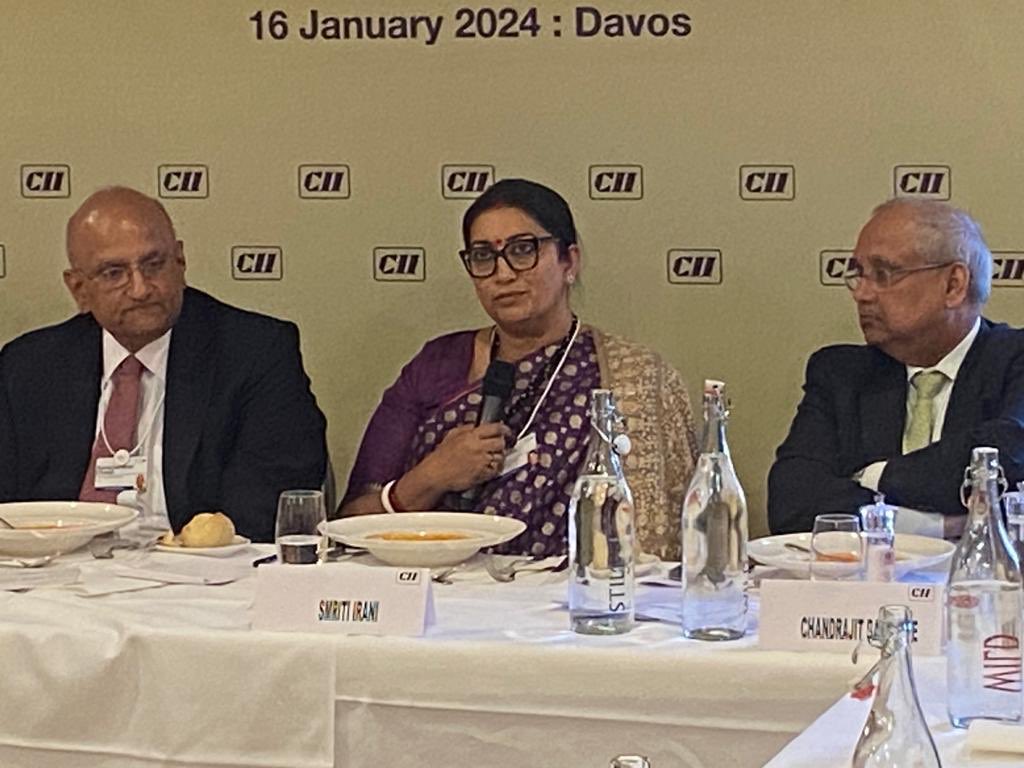Union Minister Smriti Irani on Tuesday addressed the World Economic Forum in Davos, highlighting the evolving discourse on gender justice and the necessity to shift focus towards women as entrepreneurial leaders instead of mere contributors to the labor market.
She commended Prime Minister Modi’s transformative approach, emphasizing “women-led development” for national prosperity. Irani acknowledged the diverse national contexts, cautioning against “a one-size-fits-all” strategy.
Addressing challenges in the age of automation, she questioned the accessibility of technology in India’s linguistically diverse landscape with 16,000 dialects and 125 languages.
“If you want to empower women technologically, do you have the technology in my native languages… This is one issue that needs to be addressed,” she said.
Turning to digital transformation, Irani cited India’s Ayushman Bharat Digital Mission as an example of a successful and ambitious health initiative. With 26,000 hospitals servicing 100 million families, the program has facilitated free access to treatment for 1,300 diseases, including breast and cervical cancer. The societal and cultural impact is evident as in the past two years 130 million Indian women have undergone screenings and received treatment, breaking cultural barriers around health discussions.
Irani underscored the holistic impact digital transformation can have beyond fiscal engagements, extending into segments like education. She cited the collaboration between the government and citizens in revamping the education policy, emphasizing the need for gender-inclusive academic infrastructure.
Irani urged the G20 to encourage women, constituting 42% of graduates in India, to innovate for enterprise. She challenged the notion of women being solely consumers of technology, advocating for their leadership in technological institutions and enterprises.
Highlighting the need to empower the global South, Irani said that gender justice is not just about India’s future but a collective pursuit of justice for women across all geographies.
– By Ranu Jain














